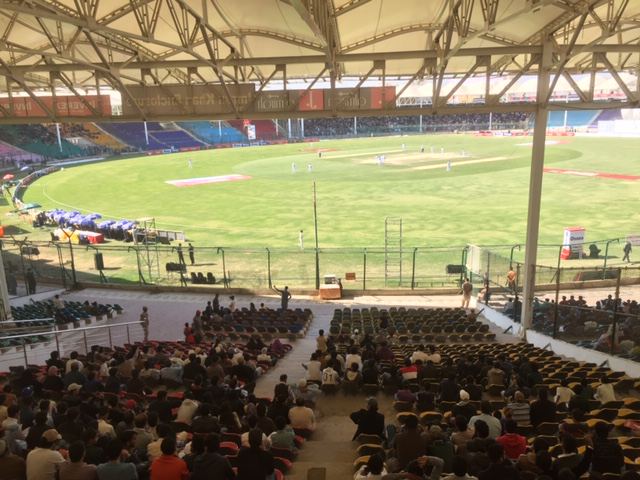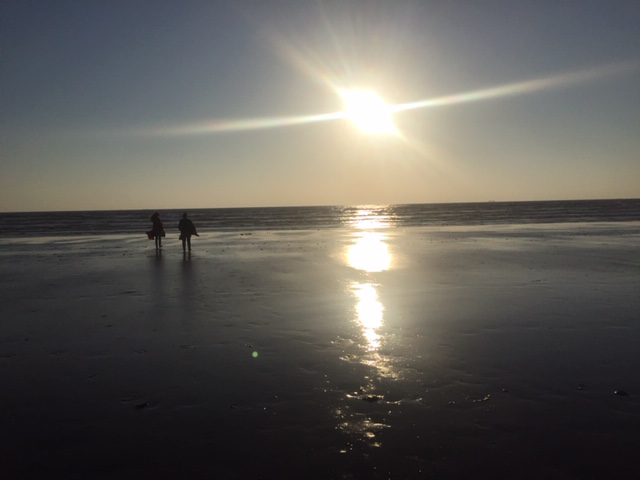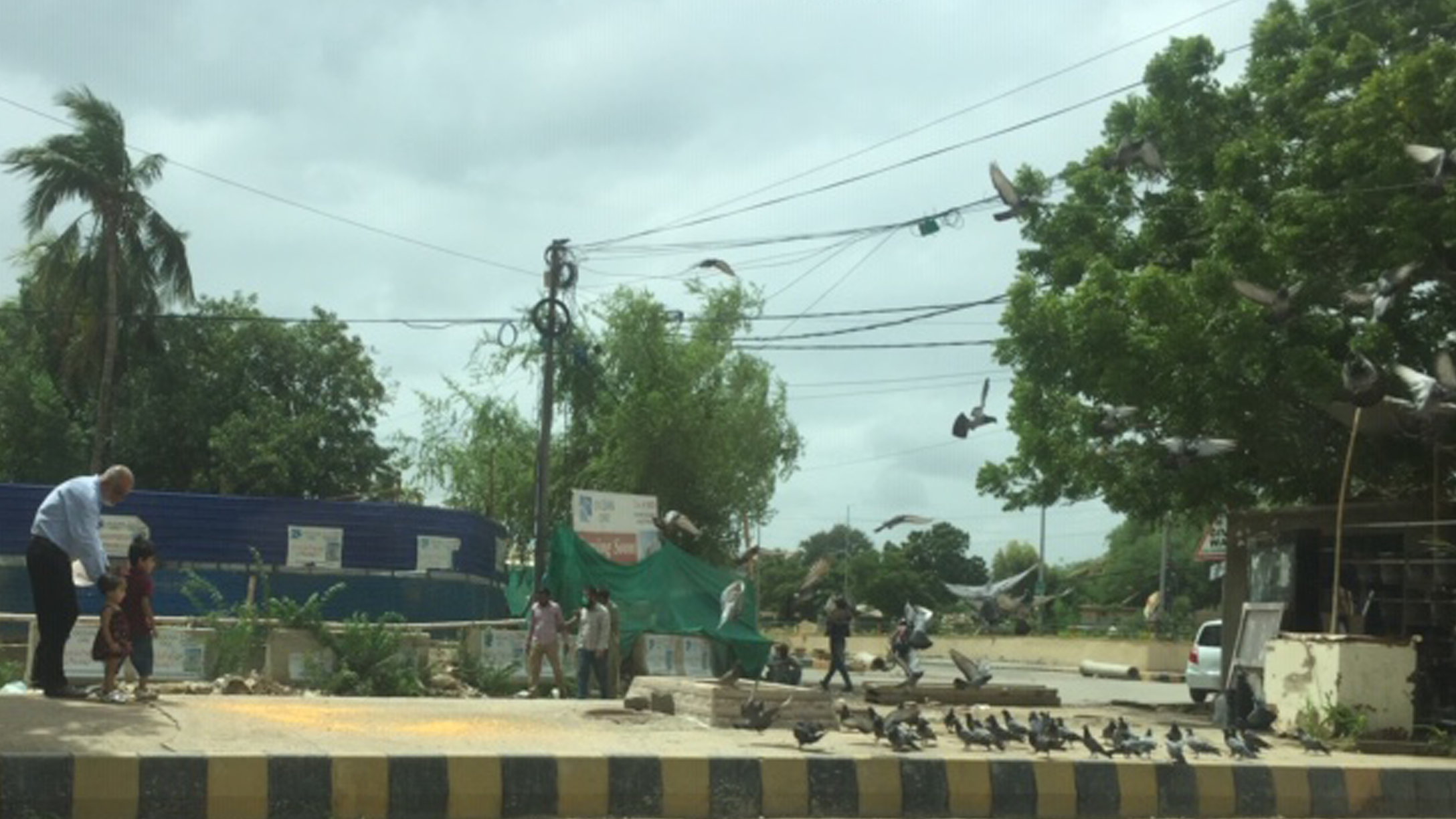My father’s lifestyle during the past five months of the pandemic has been consistent. He wakes and sleeps at a set time, offers his prayers, and feeds the birds on the rooftop. Every day, evening prayer is followed by a cup of tea, after which he opens the refrigerator, withdraws the plastic bag of leftover roti, pulls out a dining chair and sits down to break the bread into very tiny pieces. The same size I have seen him cut any edible item before putting it in my baby nieces’ mouths.
The babies have grown up or left the house, but the crows, pigeons and eagles visit without fail. Once or twice the mighty and unforgiving eagles pecked him on the head, so he started putting a towel over himself and shades over his eyes. He keeps two large earthen pots: one filled with water and the other with roti, leftover rice or white bread. The birds descend on our roof, perch up on the rims of the bowls and pick a piece of the roti, dip it in the bowl of water to soften, open their beaks slightly and then the food disappears down their throats.
The day he was harassed for wearing a mask, he did not deviate from his habit. Like so many of us, it had taken him a few days in early March to digest what the pandemic meant, how much to believe, and, most importantly, what he could do to protect himself.
Pakistan, particularly the province of Sindh, enforced a stricter lockdown at the start, and as a family we ensured that he wouldn’t have to go out much. But once in a while he felt he had to, and it has been his preference to do his chores early in the morning. For as long as I can remember, markets in Pakistan traditionally haven’t opened before noon—but banks, milkshops, pharmacies and small utility stores do, and that’s all that my father needs. Plus the opportunity to avoid the rush. A shop or a street full of people or traffic has ever been his bane, even before this emergency.
So on this particular day, wearing his usual green surgical mask, he was waiting for his turn outside a pharmacy when someone bumped past him in a way that felt deliberate. He turned around to find a man walking past.
“So what? Afraid of corona, are you? We all have to die; you will die too! So what?” the man said to him mockingly, and went away.
My father collected his medicines and drove back home. That night at dinner, frowning disapprovingly, he imitated his harasser. And I thought this pretty much summed up Pakistan’s take on the pandemic: We will not protect ourselves, and will not respect those who are protecting themselves and others around them. But we will for sure mock others. We don’t believe in the virus, yet we fear it at the same time.
In late February, a Pakistani woman tweeted that when she wore a mask outside, men on bikes had whizzed past her screaming, “Bhaago corona agaya hai!”—Run, corona is here!—all the while laughing at her. Note that a motorbike that goes past a woman walking, driving or simply standing in public in Pakistan is unlikely to pass by without some kind of commentary. Whistles, a mashallah, a comment like oho bohat jalid hai (you seem to be in a hurry) or simply braking in front of you with an offer to drop you at your destination. This is common for women, unremarkable even, but the story hits you differently when the victim is your father, an elderly man just trying to protect himself—and his harasser—from the plague.

In late February, Pakistan’s border with Iran was still porous; a massive number of pilgrims returned to Pakistan even as Iran was reporting a surge in cases. A half-hearted lockdown was imposed, with central government officials downplaying the threat, saying it was “in fashion” to have lockdowns. They called it “just a flu” and switched stances between testing and not testing. At first, leadership would appear with epidemiologists and health experts on television, so people were assured that at least on the advisory level, the right minds were in charge. That stopped happening in Pakistan, as it did in the United States, and today no one knows who is leading the response.
In the holy month of Ramzan, the mosques were open in Pakistan. Doctors and other healthcare workers were abused and baton charged for demanding personal protective equipment. The top court of the country ordered opening of markets and shops for Eid shopping, on the grounds that some people only buy new clothes on Eid festivals. Business as usual. Up until a few weeks ago, Prime Minister, Imran Khan—a legendary sports figure, before he became PM—never wore a mask in public.
There were mixed messages everywhere. For a time, if you made a call through a cellphone to anyone in Pakistan a recording would play: “coronavirus is not life-endangering but can be dangerous….” But then people we knew began to die, and we started hiding it as if it was some shameful, sexually transmissible disease that happened to someone. Someone else. And then came the attacks on doctors and hospitals.
After a patient death, a doctor was assaulted in one of the public-sector hospitals in Karachi, the country’s largest metropolitan city, after which doctors demanded security. Similar incidents followed delays in processing burials, in processing tests.
Much like the political violence of yesteryear, the pandemic reaction now is blamed on the people rather than on failed leadership. If ordinary citizens vandalized hospitals and attacked doctors, and continue to rebel against taking the plague seriously, that is because the people are illiterate and just like that. Why are they like that? Who will take responsibility for a nation that has been lied to, confused with mixed messages and no leadership to emulate or respect, in a country that has extracted submission from the people with violent tactics, by force? There’s a popular saying in our culture that many associate with religion, though its exact reference is debatable: You are very much the leaders who rule you.
My friends and I often talk about how much we miss good journalism. Stories that inform or investigate, basically. We are feeling a kind of void, as the result of not grasping the outside world very acutely during the pandemic. There seems to be an absolute anarchy of (mis)information. We were taught that common tragedies bring people closer, but what I have come to realize is that until the tragedy reaches you, it will remain someone else’s problem.

As a Karachiite all my life, I’m no stranger to violence. I have seen the city change right in front of me in a blink of an eye, again and again: shutters pulled down, cars torched, and people jumping on any available bus or auto rickshaw to take them home. As a student in one of the largest public-sector universities in Pakistan, this violence and uncertainty was part of my academic life. Not to downplay how desensitized a nation can become to violence, but in fact it was a running joke among friends that if we didn’t feel like attending class, we would say Allah karay phadda hojaye (Please God let a ‘fight’ happen). I remember it was the year 2013, the year of Pakistan’s general elections, that a big fight started in the student cafeteria when a student member of one of the political parties had torn a poster of the opposing party’s founder from a wall. My friends and I saw the meleé from outside—chairs being broken and flung across the room—but the day was over just like that and we all left for home immediately.
Events like these have given public-sector universities a negative reputation, because the political strife often comes at the expense of our studies. But the outside world wasn’t much different. The ruling party of Karachi, Muttahida Qaumi Movement, the representative party of the Urdu-speaking majority in the province, had a violent stranglehold on the city up until 2015-16, with target killings, kidnappings and extortions, until the party fractured in the wake of the murder of one of its founding leaders.
Growing up, I had listened to people supporting and defending the ‘home’ party on the basis of what they represented: the Urdu-speaking migrants from India after Partition. A lot in Pakistan is about language, but mostly centered in differences and hostility, not in the cool ‘diversity’ aspect. As a kid, too, I always struggled to see politics beyond the havoc it created in our daily lives.
One of the victims of these years of political chaos is none other than my father, who was ridiculed for wearing a harmless mask. Though the shop he had inherited from my grandfather back in the 70s was unconnected to politics in any way, the neighborhood where it was located was a partisan hotbed. The violent strikes and the horrors back then, which could ensue whenever the exiled party head issued an order from London, not only impacted my father’s business—he lost it completely—but also affected his personality and mental health.
I grew up hearing many stories from my parents from that time. Their favorite, often retold, was of my sister’s birth on the very day a three-week curfew had been lifted from my father’s business locality. But the years of pent-up anger about missed opportunities, regret, and long suffering still reside in him, and we see flashes of it often.
The other day he was watching the news, and the representatives of the aforementioned party were saying their two bits about some issue, and my father out of nowhere exclaimed: “Oh yes they would say that, wouldn’t they? Liars and opportunists! I could so write a book detailing what they did to people. Scene by scene!”
“So why don’t you? I’ll help you!” I told him.
He just shook his head and smiled, indicating that he was only joking.






